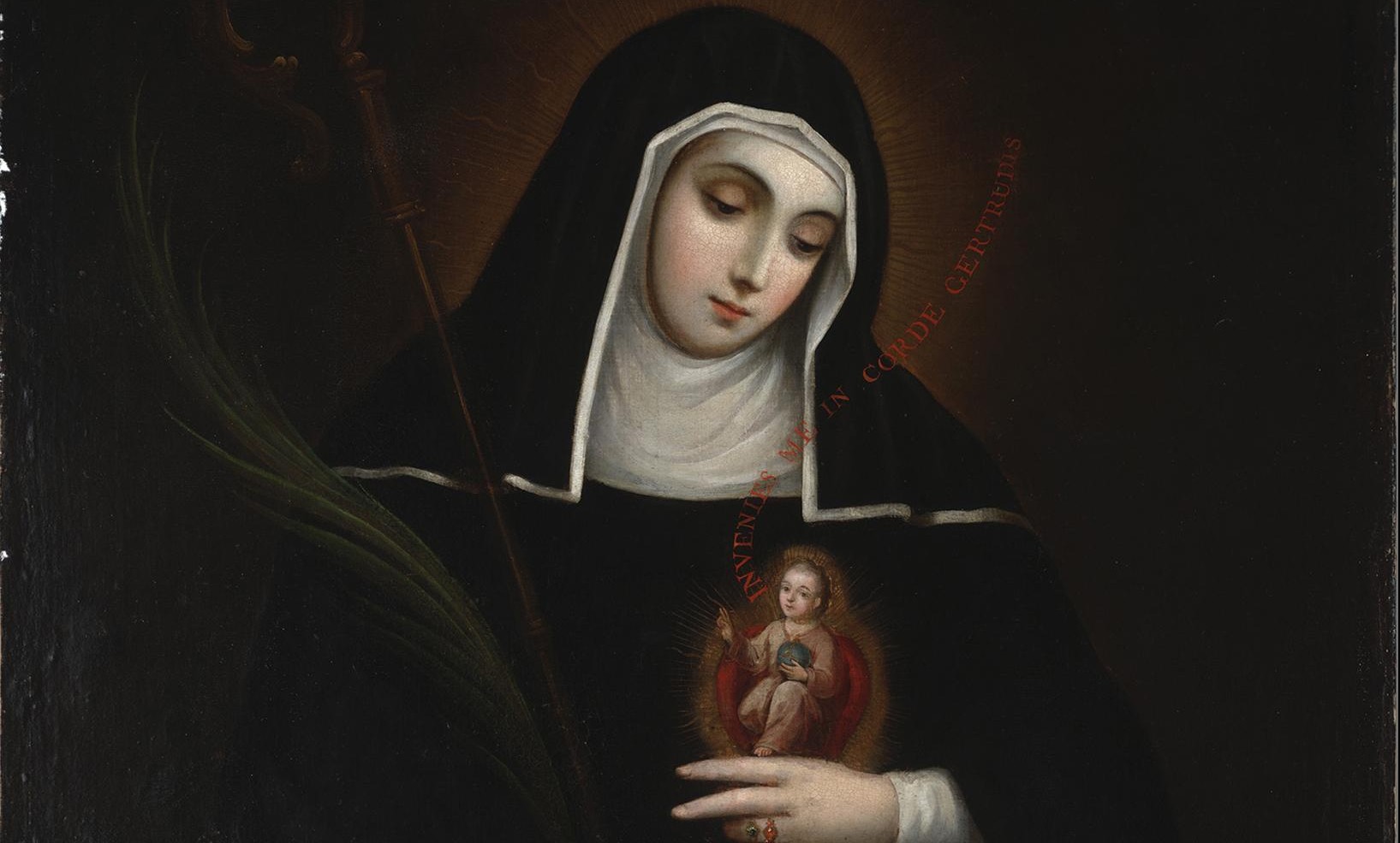How to find stability in an ever-changing world? Ought we even to seek stability at all? The Letter to the Hebrews teaches us that we have here no abiding city (Hebrews 13:14), and the Lord Himself said that He had nowhere to lay His head (Matthew 8:20). How, then, can the disciples of the Lord lay their heads down while the master is always on the go? Herein lies a paradox of the Christian life. As an ancient author remarked about Christians, any country can be their homeland, and for them their homeland, wherever it may be, is a foreign country (Letter to Diognetus 5:5). The Lord commanded His disciples to abide, not in this city or that region, but in Him, as He abides in them (John 15:4). The Christian’s abode is not found in a place, but in a person.
For centuries, the faithful have found rest in the Sacred Heart of Jesus. St. Gertrude (celebrated today in the Church’s liturgy) heard our Lord say in a vision, “Behold My Heart, let it be your temple… for I desire that My Sacred Humanity should henceforth be your cloister” (The Life and Revelations of St. Gertrude the Great, 24). Our Lord’s Sacred Heart is not merely a residence where we come and go at leisure. Our Lord speaks of His Heart as a cloister, outside of which we venture at our own peril. Such was the sweetness St. Gertrude found in the Sacred Heart that outside of it she could find neither rest nor repose. Two alternatives present themselves. Either we rest in the world while suffering a restless heart, or our heart finds such rest in the Lord that we cannot find rest anywhere in the world.
A faint inkling, a rough analogy, of what’s going on in this kind of cohabitation can be found, of all places, in Billy Joel’s 1970s single “You’re My Home,” written by the singer for his wife at the time. The song begins with a description of Joel’s soul as a crazy gypsy, evoking the image of a wandering vagabond. This restless heart is met with surprise when it “sees its withered roots begin to grow.” The consummate sojourner, who laments, “well I never had a place that I could call my very own,” can still find grounding, not in a place, but in another: “That’s all right, my love, ’cause you’re my home.” Even the prospect that he might have to travel all his life, without the chance to stop and settle down, doesn’t distress him in the least, for he can say with confidence, “Long as I have you by my side there’s a roof above and good walls all around.”
The song ends, however, on a puzzling note, with the lyric, “I need you in my house ’cause you’re my home.” How can a home be in a home? While we may be tempted to dismiss the image as a sweet nothing, our Lord might beg to differ. For, indeed, Christ offers the fulfilment of that image, the real deal compared to the shadowy approximation offered by purely human love. He who invited St. Gertrude into His Sacred Heart does not see any contradiction in saying, “You cannot find Me in any place in which I delight more, or which is more suitable for Me, than in the Sacrament of the Altar, and after that, in the heart and soul of Gertrude, My beloved” (The Life and Revelations of St. Gertrude the Great, 1). Indeed, we need look no further than the passage from Scripture mentioned above, “Abide in me as I abide in you” (John 15:4). St. Gertrude lived in the heart of Jesus, and Jesus lived in the heart of St. Gertrude. Thus did the two dwell together in one home. And thus are we invited to live with Jesus.
Oh Sacred Heart of Jesus, I need you in my house ’cause you’re my home.
✠
Image: Miguel Cabrera, Saint Gertrude







